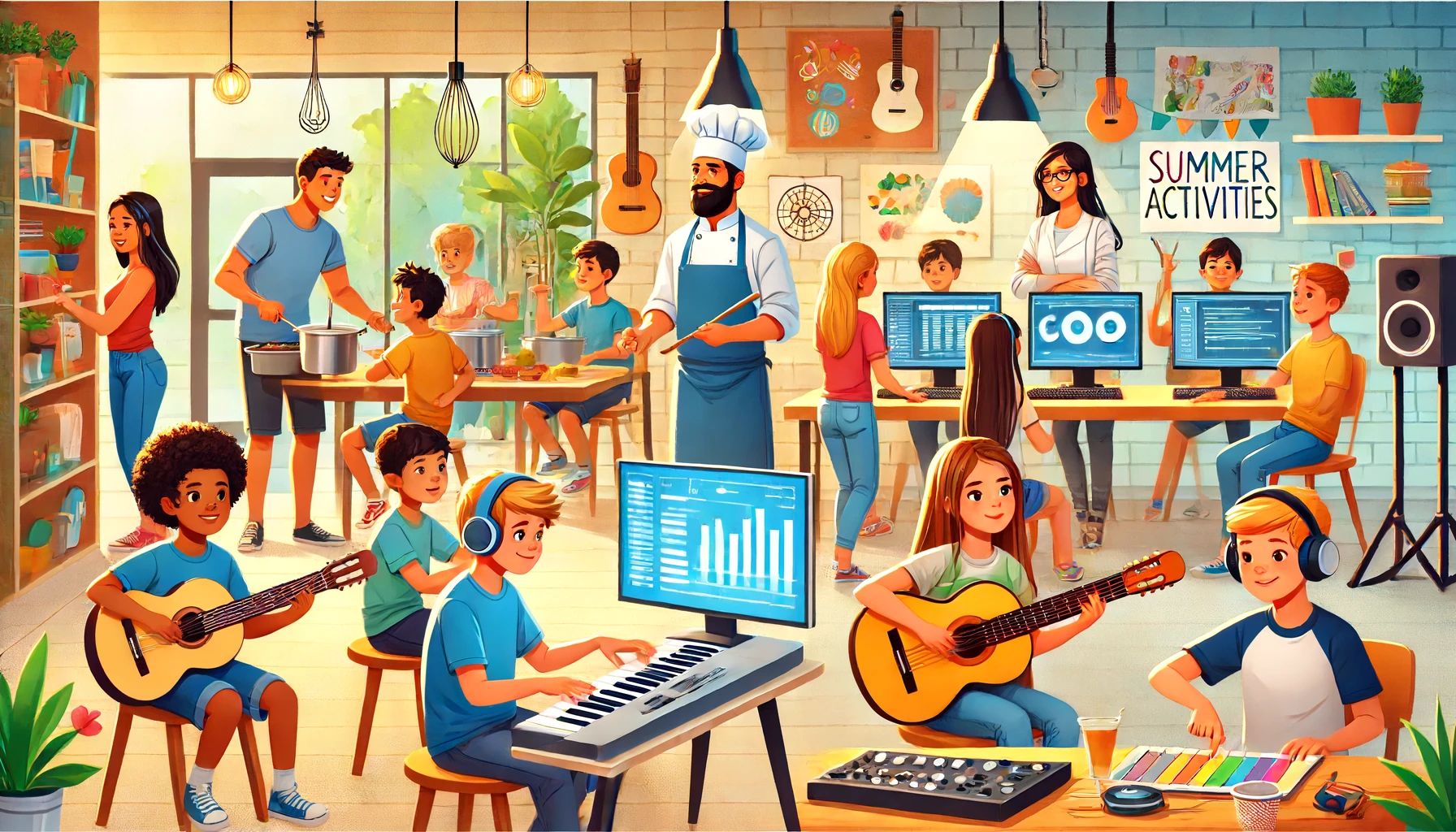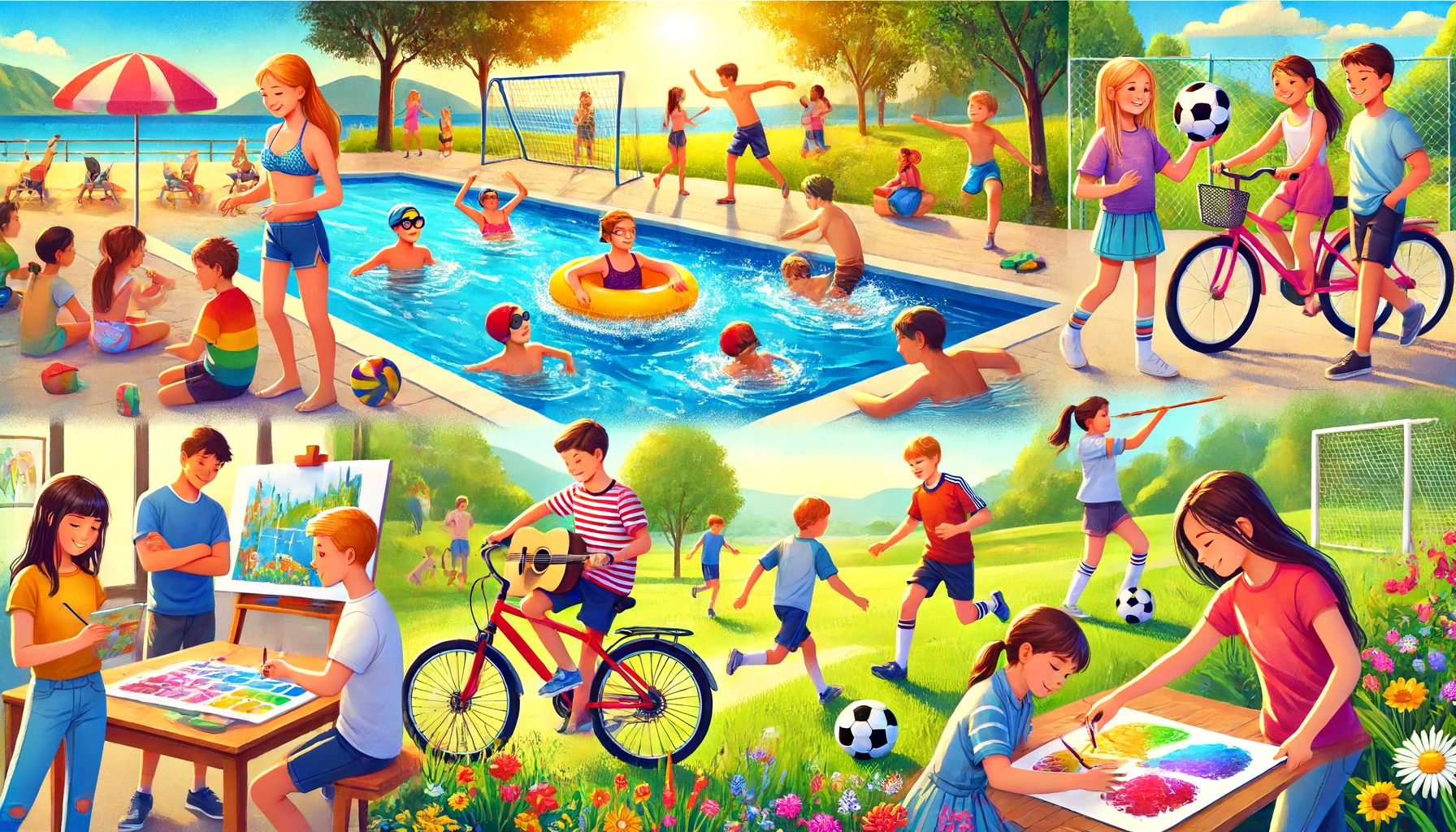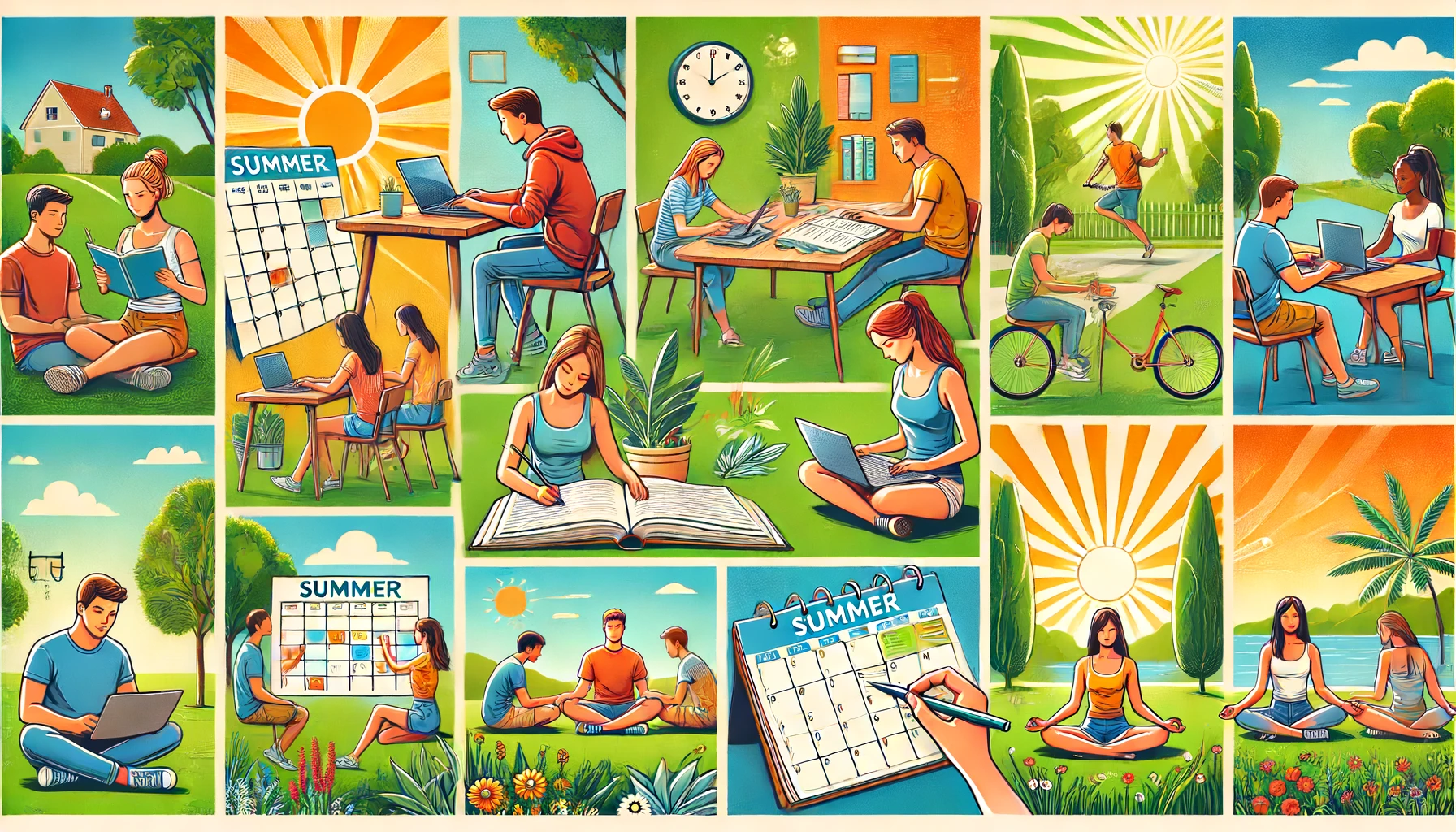Summer vacation is a much-awaited break for students. It’s a time to relax, enjoy, and take a break from the hectic school routine. However, it’s also an excellent opportunity to learn new things, pursue hobbies, and engage in activities that contribute to personal growth. Here’s a comprehensive guide on how students can make the most of their summer vacation.
How to Spend Summer Vacation for Students?
Summer vacation is a perfect time for students to learn new skills like cooking, coding, or playing a musical instrument. Enrolling in summer camps or workshops tailored to their interests can be very beneficial. Additionally, volunteering offers a fulfilling experience, helping them develop empathy and responsibility. Students can participate in local clean-up drives, tutor younger kids, or assist at animal shelters, making their summer both productive and meaningful.
Importance of Summer Vacation
Summer vacation is a vital time for students, offering a much-needed escape from the regular academic grind. It’s a chance to unwind and recharge, which is essential for mental well-being, as it helps reduce stress and stave off burnout. Beyond relaxation, summer vacation is a perfect time to bond with family and friends, creating cherished memories that last a lifetime. Additionally, it opens the door to explore new interests and hobbies that the busy school year often doesn’t allow.
Keep Your Child Engaged in Physical Activities
Summer vacation is the perfect time to ensure your child stays active and healthy. Here are some exciting ideas to keep them physically engaged:
1.Outdoor Sports and Games
Encourage your child to participate in various outdoor sports such as soccer, basketball, baseball, or tennis. Organize friendly matches with neighborhood kids or enroll them in local sports leagues to develop their skills and make new friends.
2. Swimming
Swimming is a fantastic full-body workout that’s also incredibly fun. Take your child to the local pool or beach regularly. Consider signing them up for swimming lessons if they are not already proficient swimmers.
3. Trekking and Nature Walks
Plan family hikes or nature walks in nearby parks or nature reserves. This not only keeps your child active but also helps them appreciate the beauty of nature. Make it a learning experience by identifying different plants and animals along the way.
4. Cycling
Cycling is a great way to explore the neighborhood or nearby trails. Plan family bike rides or allow older children to bike to nearby destinations with friends. Ensure they have the proper safety gear, such as helmets and knee pads.
5. Dance and Movement Classes
Enroll your child in dance classes, whether it’s ballet, hip-hop, or contemporary dance. Dancing is a fun way to stay fit and can boost their confidence and coordination.
6. Home Exercise Routines
Set up a daily exercise routine at home. Use online videos or fitness apps tailored for kids to make it engaging. Activities can include yoga, aerobic exercises, or even fun workout games that you can do together as a family.
7. Martial Arts
Martial arts classes, such as karate, taekwondo, or judo, can instill discipline, improve fitness, and teach self-defense skills. Find a local dojo with classes suitable for your child’s age and skill level.
Motivate your children to learn arts and crafts
1. Art Classes and Workshops
Enroll your child in local art classes or workshops. These can include painting, drawing, sculpting, or even digital art. Professional guidance can help them learn new techniques and develop their skills.
2. Virtual Art Exhibitions
If physical exhibitions are not an option, help your child set up a virtual art gallery. They can take photos of their artwork and share them on a blog, social media, or with family and friends through email. This can boost their confidence and sense of accomplishment.
3. Art Challenges and Competitions
Participate in art challenges or local competitions. These can provide motivation and a sense of accomplishment. Look for themed challenges online or within your community where children can showcase their creations.
How to help Students to make the best out of their break
Learning New Skills
One of the best ways to utilize summer vacation is by learning new skills. This can be anything from cooking to coding, or even learning to play a musical instrument. These skills not only provide a productive way to spend time but also enhance creativity and problem-solving abilities. For example, cooking can teach measurement and planning, coding enhances logical thinking, and playing an instrument improves concentration and patience. Additionally, these skills can be beneficial in the future, both academically and personally.

Fun and Educational Activities
Combining fun with education is a great way to spend summer vacation. Activities like visiting museums, going on nature walks, and conducting simple science experiments at home can be both enjoyable and educational. Museums offer a wealth of knowledge about history, art, and science. Nature walks help students learn about the environment and appreciate nature. Simple science experiments at home can spark curiosity and interest in scientific concepts. These activities ensure that learning continues in a fun and engaging way, making the most of the vacation time.
Also Read: How to Develop Soft Skills for Students
Engaging in Creative Hobbies
Summer vacation is an ideal time to engage in creative hobbies. Hobbies like painting, writing, or photography can be very fulfilling and offer a great way to express oneself. Painting can be relaxing and help in developing fine motor skills. Writing enhances creativity and communication skills, while photography encourages observation and attention to detail. These hobbies allow students to explore their creative side and discover new passions. Moreover, they provide a break from academic activities and help in developing a well-rounded personality.
Physical Activities and Sports
Staying active during summer vacation is important for maintaining physical health. Engaging in physical activities and sports can be fun and beneficial. Activities like swimming, cycling, and playing team sports such as soccer or basketball help in building physical fitness, coordination, and teamwork skills. Regular exercise also boosts mood and energy levels, which is essential for overall well-being. Additionally, participating in sports can teach valuable life skills like discipline, perseverance, and leadership.

Volunteering and Community Service
Volunteering and community service are excellent ways to give back to society during the summer break. Students can get involved in various activities such as local clean-up drives, tutoring younger children, or helping at animal shelters. Volunteering teaches empathy, responsibility, and the importance of contributing to the community. It also provides a sense of accomplishment and purpose. Engaging in community service can be a rewarding experience and help students develop a broader perspective on life.
Travel and Exploration
Traveling is a wonderful way to learn and explore new places. Whether it’s a family trip to a different city or just exploring local attractions, traveling can be very enriching. It exposes students to different cultures, traditions, and lifestyles, broadening their horizons. Travel can also be educational, as it provides first-hand experiences that are different from classroom learning. Visiting historical sites, nature reserves, and cultural events can be both informative and enjoyable. Travel encourages curiosity, adaptability, and a sense of adventure.
Time Management and Goal Setting
Time management is a crucial skill that students can develop during their summer vacation. It’s important to create a balanced schedule that includes both fun and productive activities. Setting achievable goals for the vacation can help in staying organized and focused. For instance, students can set goals to read a certain number of books, complete a project, or learn a new skill. Managing time wisely ensures that the vacation is spent in a meaningful way, balancing relaxation with productive pursuits.

Conclusion
Summer vacation is a precious time for students. It’s a period to unwind and enjoy, but also a chance to grow and learn in new ways. By engaging in activities like learning new skills, pursuing creative hobbies, staying active, volunteering, traveling, and managing time effectively, students can make the most of their summer break. These activities not only make the vacation enjoyable but also contribute to personal development and prepare students for the upcoming academic year. So, plan wisely and enjoy a productive and fun-filled summer vacation!


